CONTRACTORHANDBOOK HANDBOOK








LOAD SECURITY IN THE SPOTLIGHT

















THE COST OF FARM SERVICES




NATIONAL SURVEY RED DIESEL RULES




ENSURE YOU USE THE RIGHT FUEL


CHECKLIST IMPROVES SAFETY FOR FARMERS AND CONTRACTORS








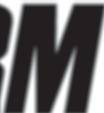







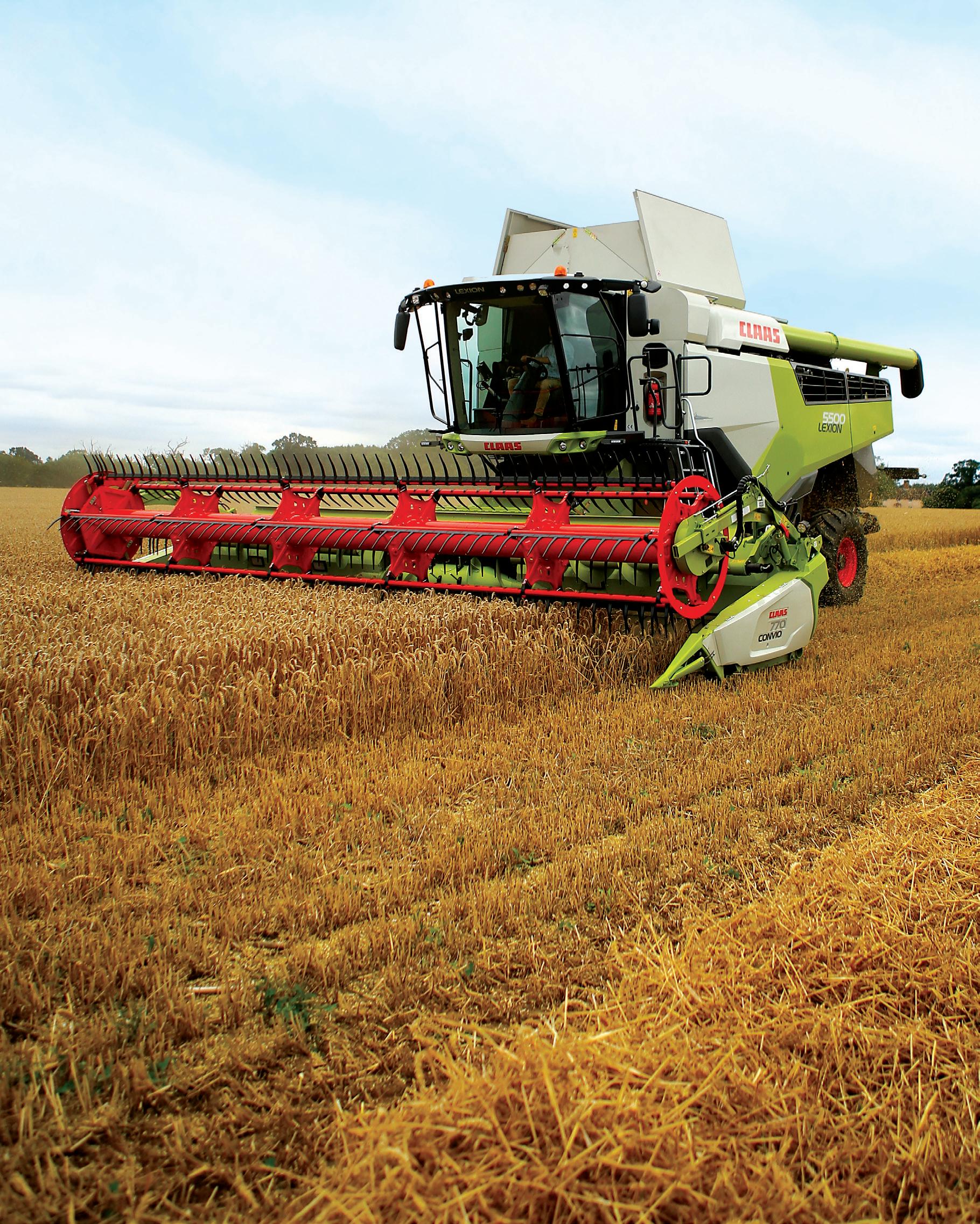
IN ASSOCIATION WITH UK EDITION

McCormick is a trademark of Argo Tractors S.p.A. mccormick.it/en POWER, COMFORT AND VERSATILITY McCormick X7 SWB. Stability, maneuverability and versatility. The new X7 SWB from McCormick offers a powerful combination of power and performance in either 4 or 6 cylinder packages. A modern McCormick is packed full of features and technology, built from reliable, proven components. With tailored warranty and finance packages to suit every farm, why not try a new McCormick? Speak to your local dealer or call us direct to book a demo on: 01302 757550
17
SECURITY
Be
20 STARTING OUT
A look at how Rob Cannell started his successful contracting business
25 SAFE WORKING
NAAC and NFU checklist ensures safe working is the top priority

SUMMER 2022 FMJ CONTRACTOR HANDBOOK 3 5 WELCOME Professional contractors are an essential part of UK farming 7 NAAC PRICE SURVEY Detailed price survey for those supplying and employing services 12 RED DIESEL RULES Comprehensive advice about the changes to rules on fuel use
LOAD
security
public roads
prepared for closer scrutiny of load
on
CONTENTS
SUMMER 2022
MORE TRACTION ALWAYS




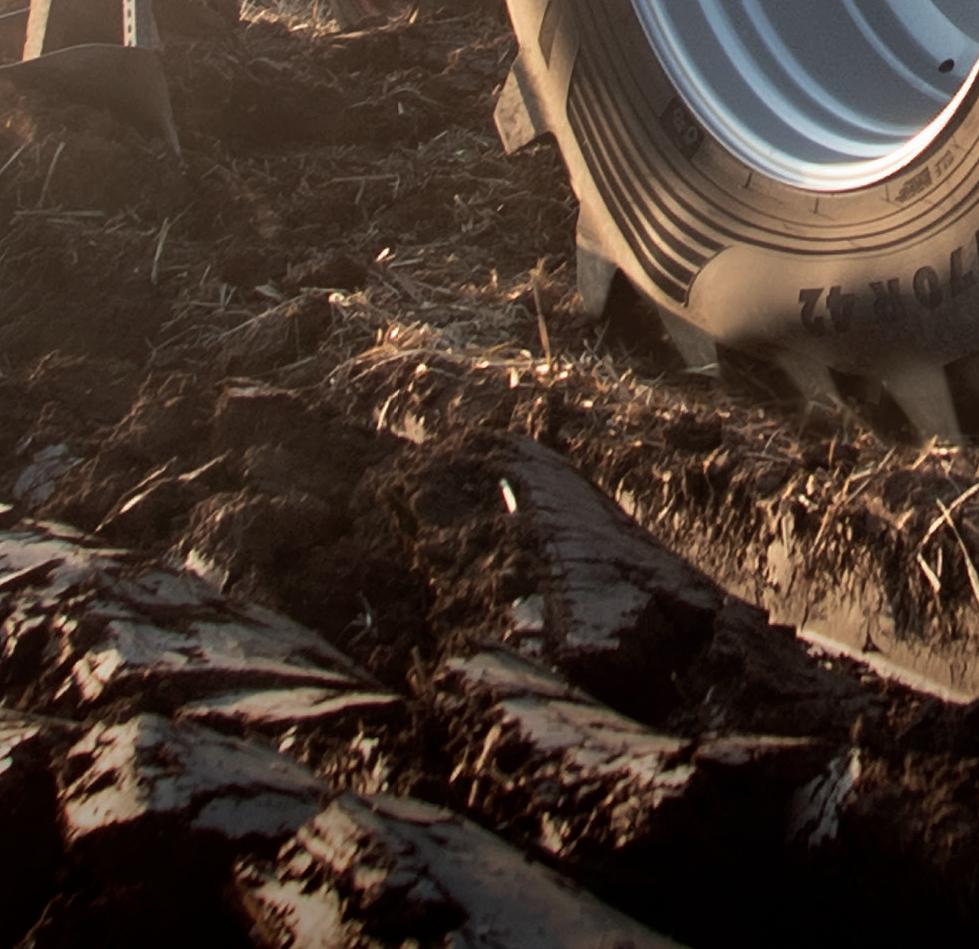

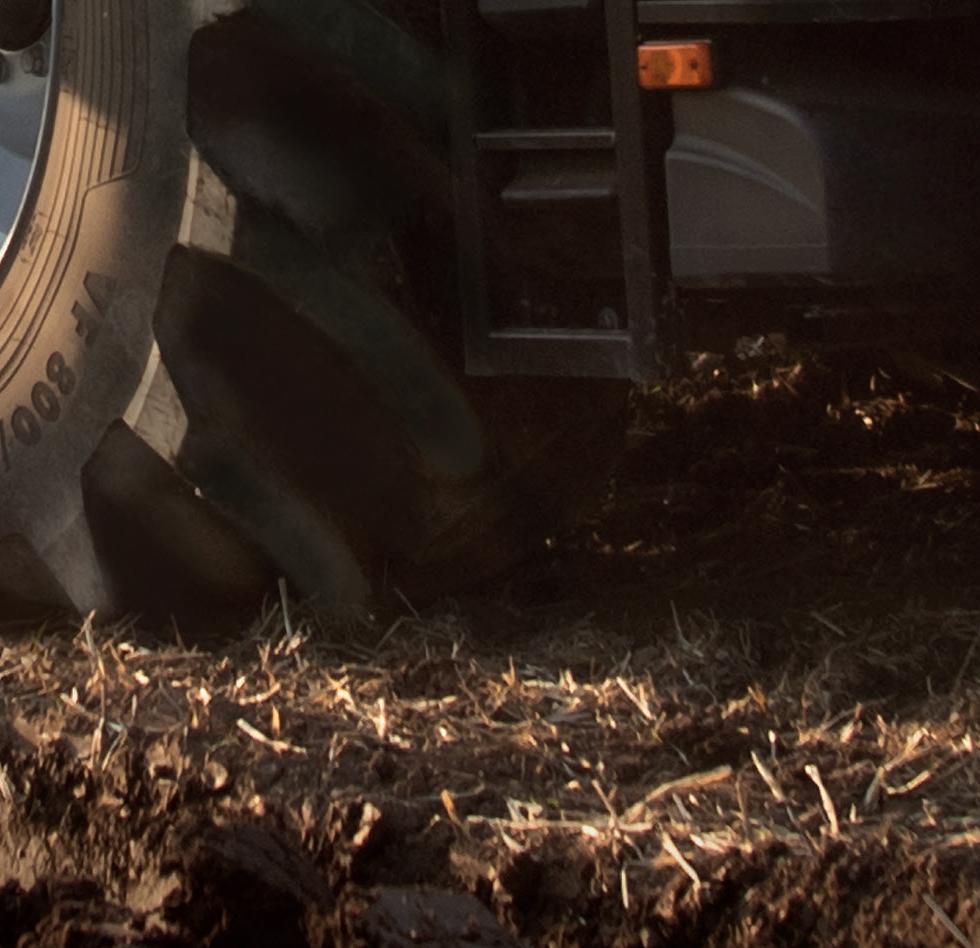

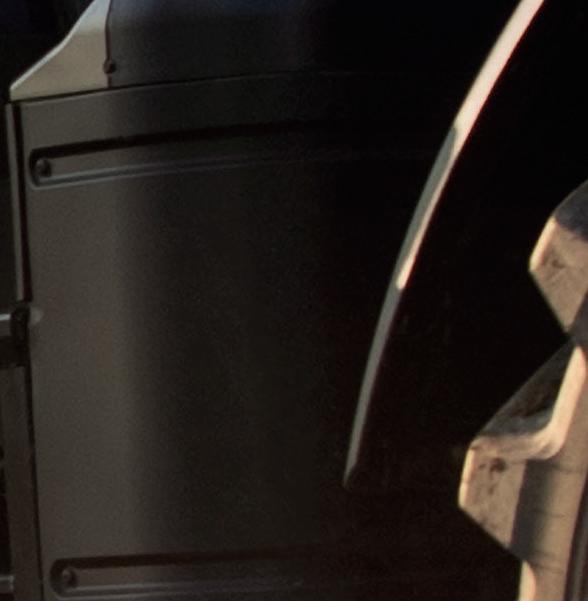


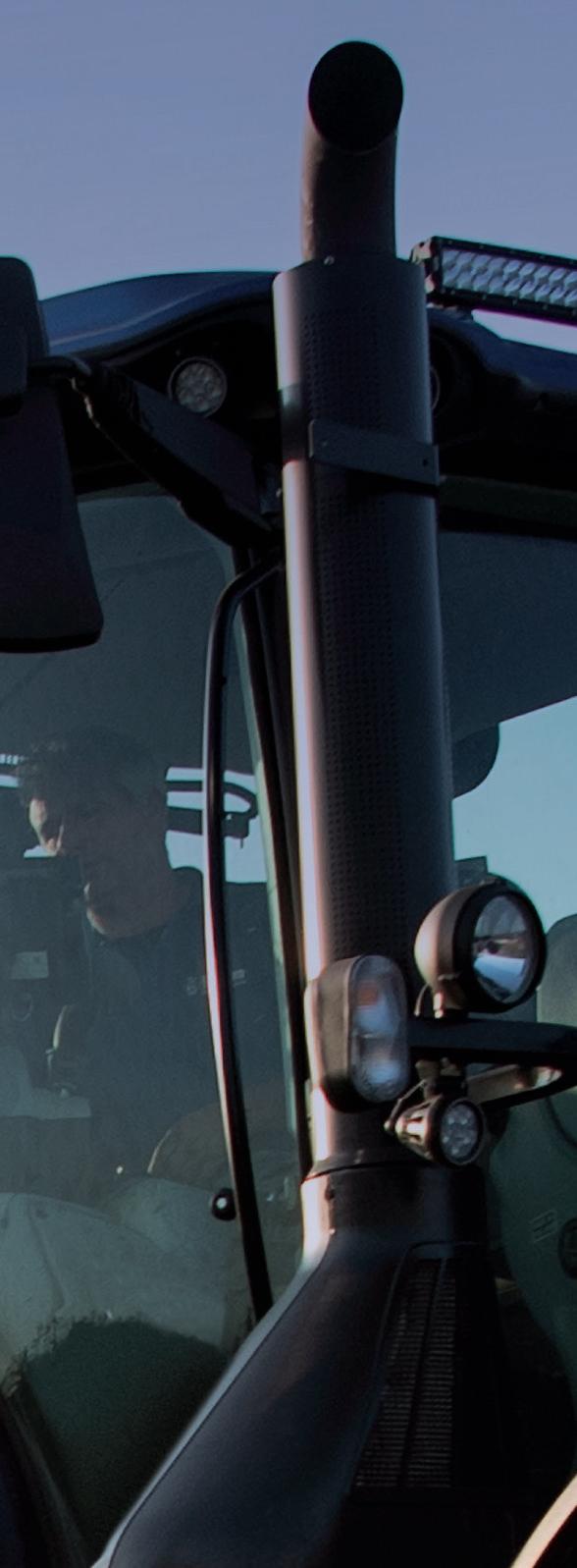





MORE INFORMATION: WWW.VREDESTEIN.CO.UK/TRAXIONOPTIMALL
editor Mick Roberts
mick@mwrmedia.co.uk
Cover deSign
David ‘Spike’ McCormack deSign Dan Tolhurst dan@dandpsolutions.co.uk
advertiSement SaleS
Alex Cronin +44 (0)20 8639 4405
adminiStrator Martin Attis +44 (0)20 8639 4409
PubliShing direCtor
Paul Cosgrove +44 (0)20 8639 4401
Contributing writerS and PhotograPherS
Jill Hewitt, Tim Scrivener, Peter Skilton
Farm Machinery Journal is
published by Sundial Magazines Ltd, Sundial House, 17 Wickham Road, Beckenham, Kent, BR3 5JS
tel +44 (0)20 8639 4400
Fax +44 (0)20 8639 4411
email info@farmmachineryjournal.co.uk web www.farmmachineryjournal.co.uk
SubSCriPtionS
Farm Machinery Journal
subscriptions, Trinity House, Sculpins
Lane, Wethersfield, Essex, CM7 4AY
tel +44 (0)1371 853634
email farmmachineryjournal@ escosubs.co.uk
newStrade
Seymour Distribution, 2 East Poultry Avenue, London, EC1A 9PT
tel +44 (0)20 7429 4000
rePro
Design & Printing Solutions Ltd
Unit 45C, Joseph Wilson Industrial Estate, Whitstable, Kent CT5 3PS tel +44 (0)1227 770034
Printing
Precision Colour Printing, Haldane, Halesfield 1, Telford, Shropshire TF7 4QQ.
CoPyright
Sundial Magazines Ltd 2022. All rights reserved. Reproduction in whole or in part is forbidden without the express permission of the publishers.
ISSN 2055-043X Sundial Magazines Ltd.
Registered in England no. 4134490.
ConditionS For advertiSing
All advertisements are accepted subject to the publisher’s standard conditions of insertion. For a copy of advertising terms & conditions, please write to Paul Cosgrove at Sundial Magazines Ltd, Sundial House, 17 Wickham Road, Beckenham, Kent, BR3 5JS
SUMMER 2022 issue
Cover
Peter Skilton
Welcome to the
FMJ UK Contractor Handbook, the unique publication that delivers essential information for all those employing and providing contracting services.
More than 90% of all UK farms use a contractor to deliver a wide range of services. As the size, complexity and cost of modern machinery increases and the availability of skilled labour continues to constrict, professional contractors are set to play an increasingly vital role in the efficiency and profitability of modern farming.

This is why Farm Machinery Journal is delighted to work in association with the NAAC to produce this handbook to help both farmers and contractors work in partnership to improve safety and productivity.
Indeed, to further enhance this already close relationship the NAAC and NFU have created a useful check list for farmers and contractors. Part of the Farm Safety partnership it explains how both need to work together to establish safe working practices.

With safety in mind, following a number of accidents, the DVSA is paying closer attention to agricultural vehicles transporting loads. Everybody involved in agriculture will have been affected by the sharp rise in fuel prices, particularly as they come when machines are working flat out. Along with increases in other areas these costs are reflected in the annual contracting prices survey.
Based on costs when red diesel was £1.00 earlier this year, the NAAC warns operators that, to remain profitable, they must add a surcharge if prices rise above this.
All users of red diesel also need to be aware of changes to the rules regarding its use that came into place in April this year. The NAAC lobbied hard for its continued use in agricultural operations, and it’s important all users understand the changes and the implications.
Frontlink// UK edition SUMMER 2022 FMJ CONTRACTOR HANDBOOK 5
LOAD SECURITY IN THE SPOTLIGHT CONTRACTORHANDBOOK THE COST OF FARM SERVICES ENSURE YOU USE THE RIGHT FUEL UK EDITION CHECKLIST IMPROVES SAFETY FOR FARMERS AND CONTRACTORS NATIONAL SURVEY RED DIESEL RULES
image
THE AWARD-WINNING


ISUZU D -MAX


DRIVEN TO DO
SMARTER. STRONGER. SAFER. FIND OUT MORE AT ISUZU.CO.UK


All fuel consumption and emission values are based on the new WLTP (Worldwide Harmonised Light Vehicle Test Procedure) test cycle which uses real-world driving data. Official fuel economy for the standard Isuzu D-Max range in MPG (l/100km): Low 25.1–27.6 (10.2–11.2). Mid 31.4–36.4 (7.8– 9.0). High 36.0–39.4 (7.2–7.8). Extra-High 29.0–30.8 (9.2–9.7). Combined 30.7–33.6 (8.4–9.2). CO2 emissions 220–241g/km.


The Isuzu D-Max is Smarter Stronger Safer compared to previous model. Visit isuzu.co.uk for full details.



OF 2022 THE YEAR
PICK-UP
NAAC Contracting Prices Survey 2022
Prices are based on red diesel at £1.00 per litre and are likely to vary as input costs change and contractors should add a fuel surcharge if diesel prices are over £1.00/litre to cover their costs. If any non-agricultural operations are carried out, expect the costs to be higher to take account of using white diesel. These survey prices are intended as a guide only. They are average prices surveyed from NAAC members — however the actual price may vary considerably between regions, soil types, distance travelled, size of contract undertaken, size and type of equipment used, amount of product applied etc.
Business// Contractor Charges Survey SUMMER 2022 FMJ CONTRACTOR HANDBOOK 7 Soil preparation COST £/hectare COST £/acre COST £/hour Ploughing - Light land 71.34 28.89 - Heavy land 79.13 32.02 - Add for furrow press on plough 6.69 2.71 Deep ploughing (over 30cm) 81.12 32.83 Rotovating (ploughed land/grass) 87.98 35.61 Sub-soiling/Flat lifting 76.99 31.16 Mole-ploughing: - Single leg 95.57 38.68 - Twin leg 89.57 36.25 Stubble raking 25.12 10.17 Disc harrowing 61.43 24.86 Power harrowing: - Shallow/ seedbed prep 64.82 26.23 - Deep/ on ploughing 73.63 29.80 Spring-tine harrowing 46.01 18.62 Pressing: (Rexus Twin/Cultipress or similar) 50.52 20.45 One-pass tillage train (Solo/Discordon) 74.40 30.11 Rolling: - flat (grassland) 33.71 13.64 - ring (seedbeds) 25.56 10.35 Bed tilling 271.81 110.00 Chain harrowing 33.07 13.28 Drilling COST £/hectare COST £/acre COST £/hour Cereal drilling: - conventional (Väderstad/Sprinter etc) 56.28 22.78 - combi-drilling (power harrow drill/combination) 78.39 31.73 - direct drilling (tine/disc/strip) 71.37 28.88 Rape drilling with flat-lift/subsoiler 80.63 32.63 Sugar beet drilling 61.25 24.80
8 FMJ CONTRACTOR HANDBOOK SUMMER 2022 COST £/hectare COST £/acre COST £/hour Potato planting 197.68 80.00 Carrot/parsnip/onion precision drilling 93.90 38.00 Maize precision drilling 56.73 22.96 Maize drilling under plastic 150.73 61.00 Grass seed - broadcast 32.33 13.09 Grass seed - drilling with harrow 47.86 19.37 Grass seed - cross drilling (per pass) 63.80 25.82 Application COST £/hectare COST £/acre COST £/hour Fertiliser distribution: - spinning disc 15.04 6.09 - extra for variable rate application 6.44 2.61 Liquid fertiliser 14.48 5.86 Crop spraying 16.30 6.60 Grassland/pasture/paddock spraying 24.09 9.75 Large area spraying - over 200 acres 12.77 5.17 ATV spraying 46.82 Slug-pelleting 8.00 3.24 Avadex application 18.29 7.40 Weed wiping 55.00 Lime spreading 7.58 per tonne Slurry and Farmyard Manure COST £/tonne COST £/hour FYM spreading - tractor and rear discharge spreader 3.24 67.05 FYM spreading - tractor and side discharge spreader 56.00 Self-propelled muck spreading 6.00 Loading and spreading chicken litter 9.50 Slurry spreading - tanker trailing shoe or dribble bar 66.55 Slurry spreading - umbilical 135.33 - extra pump 64.00 Slurry injection 78.33 Loading shovel 60.00 Hedges and boundaries COST £/metre COST £/hour Hedge cutting – flail 47.84 Hedge cutting – saw blade 57.50 Hedge laying 17.00
SUMMER 2022 FMJ CONTRACTOR HANDBOOK 9 COST £/metre COST £/hour Verge bank mowing 51.83 Fence erection (with materials) Post and 4 rows barbed wire 6.33 Post, stock net 2 rows barbed wire 10.90 Post and 3 rails 23.50 Harvesting COST £/hectare COST £/acre COST £/hour Combining cereals 110.71 44.80 - Extra for straw chopper on combine 22.96 9.29 Oilseed rape harvesting - combining out of windrow 106.29 43.01 - direct combining 106.14 42.95 Swathing rape 58.00 23.47 Combining peas/beans 109.10 44.15 Combining grain maize 126.30 51.11 Grain carting to barn 52.10 Potato harvesting only 695.00 281.26 Potato harvesting and carting 1055.00 426.95 Potato - de-stoning land 285.00 115.34 Sugar beet harvesting - harvesting only 248.00 100.00 Sugar beet harvesting - harvesting and carting 290.00 117.36 Topping margins/ flail mowing 48.44 19.61 Grass - topping 46.13 18.67 Grass - mowing 36.60 14.81 Grass - tedding 21.12 8.55 Grass - raking 22.06 8.93 Forage harvesting only 83.29 36.03 Whole crop forage harvesting, cart (3 trailers) & clamping 203.44 82.33 Complete service - mow, rake, forage harvest, cart (3 trailers) 189.70 76.77 Maize harvesting incl. carting (3 trailers) and clamping 198.95 80.51 Extra trailer for carting silage/maize/whole crop 51.91 Forage wagon/hour 131.20
Business// Contractor Charges Survey
Business// Contractor Charges Survey
*note these prices may vary with bale density
10 FMJ CONTRACTOR HANDBOOK SUMMER 2022 Baling COST £/bale - Small conventional 0.88 - 80cm x 90cm 4.67 - 120cm × 70cm 5.84 - 120cm x 90cm 6.79 - 120cm × 130cm 8.06 - Round 120cm 3.84 - Round 150cm 4.69
Bale-wrapping - Round 120cm (with 6 layers of plastic) 6.72 - Round 120cm (with 4 layers of plastic) 5.51 - Round 120cm (without plastic) 2.89 - Square 120cm × 70cm (with 6 layers of plastic) 8.33 - Square 120cm × 70cm (with 4 layers of plastic) 8.63 - Square120cm × 70cm (without plastic) 3.49 Bale Chasing (per bale) 3.06 Mobile feed COST £/tonne Mobile feed mixing and processing from 22.00 Crimping 14.07 Tractor hire COST £/hour Tractor + post knocker + operator 52.77 Ditching using 180 degree digger 42.14 Ditching using 360 degree digger 50.10 Drain jetting 62.33 100-150hp tractor + operator 47.36 150-3000hp tractor + operator 50.13 220-150hp tractor + operator 64.60 300hp tractor + operator 79.89 Additional charge for trailer 11.14 Forklift/Telehandler + operator 49.17 Specialist COST £/hour Snow ploughing/clearing 67.26 Labour only 19.38 Chainsawing with operator 35.00

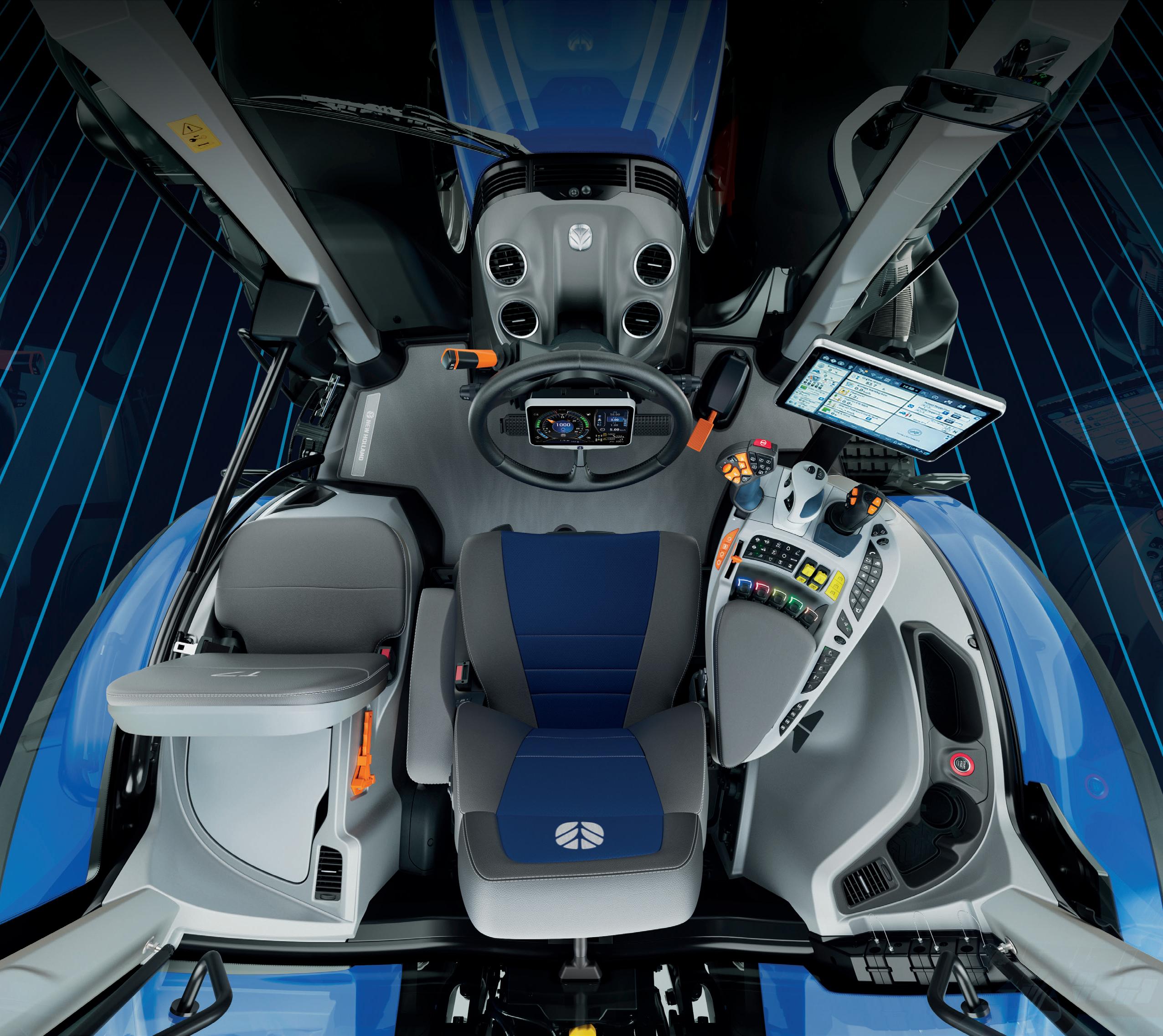







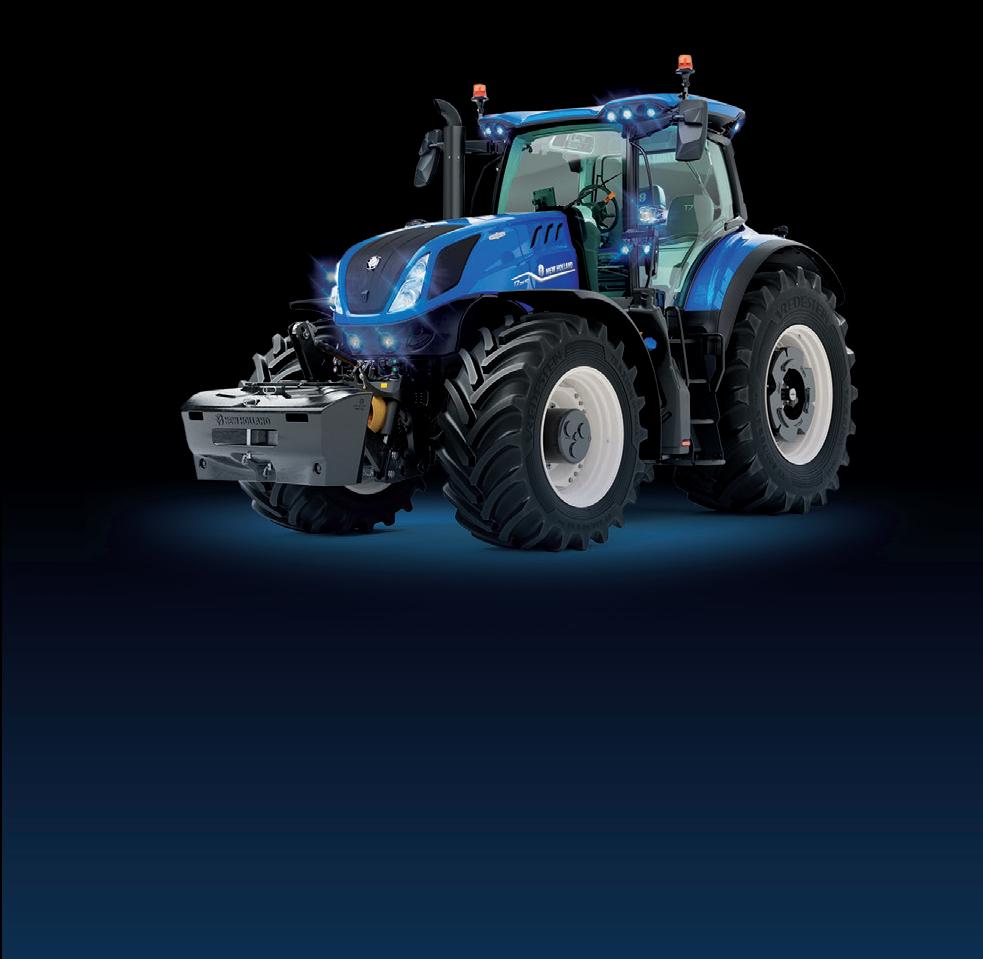











NEW T7 HEAVY DUTY WITH PLM INTELLIGENCE™ PLM INTELLIGENCE THE
OF INTELLIGENCE ENJOY THE SMARTEST TECHNOLOGY AND MAXIMUM PRODUCTIVITY FROM THE MOST COMFORTABLE AND QUIETEST CAB. SEE WIDER New Horizon Ultra cab with +7.5% cab volume and +11% glass area. OPERATE QUIETER At just 66dBA, welcome to the quietest tractor cab. THINK SMARTER The most connected tractor with efficiency-boosting PLM® Intelligence. FEEL STRONGER Best-in-class 630l fuel tank, 750-hour service intervals, 24/7 Uptime Support. www.newholland.com/uk NEW HOLLAND TOP SERVICE 00800 64 111 111 24/7 SUPPORT AND INFORMATION The call is free from a land line. Check in advance with your Mobile Operator if you will be charged. btsadv.com New Holland prefers lubricants
POWER
Red diesel rules
NAAC experts explain the rule changes regarding using red diesel
On 1 April this year the entitlement to use rebated (red) diesel changed. While the new rules still allow its use in farming and some other industries, others such as construction and waste management, as well as leisure, must now use only white, fully taxed fuel.
For farmers and, particularly, contractors this will create great difficulties because their operations may involve their vehicles working across different sectors – some for
which red diesel is permitted and in others where it is not.
What is allowed use?
Agriculture, horticulture, fish farming and forestry retain the use of rebated fuel.
It is therefore important to be clear that any work you do is specifically for an agricultural purpose. This is not necessarily the same as just doing work on agricultural land. The operation you are doing must be of benefit to the land/livestock.
HMRC defines ‘agriculture’ as ‘the growing and harvesting of crops, for food, beverages, fodder, fuel, or industrial purposes; or the rearing of animals for the production of food, wool, leather, fur or other substances.’
You can also use rebated fuel in agricultural vehicles when:

• Cutting verges and hedges that border a road
• Clearing snow
• Gritting
• Assisting any clear-up following flooding.
12 FMJ CONTRACTOR HANDBOOK SUMMER 2022
It’s vital users follow the new rules regarding red diesel use on- and off-road vehicles
Questions and answers
Earlier this year the NAAC held a virtual meeting with HMRC in which it endeavoured to nail down what exactly is permitted use and what is not. Here the association’s experts outline some of the main changes and provide answers to some of the most common questions.
Q What defines ‘agricultural and horticultural use’?
A In simple terms agricultural use is doing work for agricultural benefit. The specific definitions can be found in section 12 of the Excise Notice 75.
An agricultural operation will require specialist skills, knowledge or technology relating to the industry and must be for the benefit of the land/livestock. Red diesel can be used in an agricultural vehicle for any purpose on land where it is ordinarily kept and used primarily for purposes relating to agriculture, horticulture, forestry etc.

A farmer can also use red diesel in machines or appliances (other than vehicles) for any operation on their premises, provided the machine is ordinarily kept on that land and is otherwise used for purposes relating to agriculture, horticulture, forestry etc.
Q Can an agricultural contractor use rebated fuel?
A Provided a contractor is using an allowed vehicle or
machine for an allowed purpose, they can continue to use red diesel when driving to and from the farm, carrying materials or equipment needed for the job and removing waste resulting from it.
Q Can a self-employed contractor with their own tractor and trailer use red diesel if employed by another contractor as part of the harvesting team?
A Yes, provided the contractor is part of the harvest team, taking the produce off the field. This is an off-road operation integral to the agricultural operation that could not be done by an HGV.
If farmers and contractors help each other with work, then it is important that both parties are part of the team and working for agricultural benefit as part of the operation. For example not doing a job that involves only transporting the produce — which is haulage.
Allowed vehicles or excepted machine?
Once a legitimate use (as shown in Excise Notice 75) can be established it is then important to confirm that the vehicle you are intending to use is allowed to use red diesel. ‘Excepted machines’ that are allowed to use red include agricultural vehicles, special vehicles, unlicensed vehicles and certain machines and appliances. They must, however, only be doing an approved operation not just working off-road (as was currently allowed).
Further details
For full details use an internet search for: ‘Excise Notice 75, Memorandum of Agreement (MoA)’. This provides a link to HMRC guidance on using rebated fuels in vehicles and machines, which is a valuable reference point for whether an operation has an ‘agricultural purpose’.
SUMMER 2022 FMJ CONTRACTOR HANDBOOK 13
Legal// Fuel use restrictions
There are considerable cost implications now white diesel prices are above £1.90/litre
Q How can I operate when my vehicles (tractors, diggers) may regularly switch between agricultural and nonagricultural jobs?
A HMRC suggests the ideal scenario would be to have designated vehicles for allowed/non-allowed purposes. However, for many contractors this simply isn’t possible — not to mention the increasing cost of machinery.
If you are switching to a non-allowed white diesel operation, the tank needs to be thoroughly drained and then flushed out with white diesel.
Contractors should record this and retain all documentation to show:
• When a vehicle or machine was filled up with red diesel.
• When it was flushed out.
• When it was refilled with full duty-paid fuel.
• The vehicle or machine has previously been used for allowed purposes — as proved, for example, by the job invoice.
There is no guarantee, however, that any of the above paperwork will be sufficient to avoid seizure of the vehicle if officers detect vehicles or machines with traces of red in a tank of white diesel on a non-agricultural job. However, the NAAC expects HMRC to be focused on enforcement of criminal evasion and be looking for the use of red in non-allowed operations.
If a vehicle is taxed as an agricultural vehicle, however, it must be used solely for
agricultural use and therefore switching to a non-agricultural use may put you on the wrong side of vehicle taxation law. If the job is for hire and reward (haulage) you may also need to consider additional haulage requirements, such as the driver’s hours.
Q Can I use red all the time and just pay back the tax if I then do any non-agricultural work?
A No, HMRC is clear that it is illegal to use rebated fuel for a non-allowed purpose and if caught doing so you will be liable to prosecution and having your vehicle or machine seized.
Q Can dual tanks be used?
A No, this continues to be illegal.
Q I use my vehicles on construction work. Do I need to run my non-agricultural vehicles on white diesel?
A Yes, and it will be important to ensure customers that have previously had access to red use off-road are aware of the changes. In quoting for new
jobs, you should include the price of using white diesel and ensure customers are aware that the use of red (even off-road) is illegal on construction sites.
Q Can I use red diesel in my unlicensed equipment (e.g. drainage trencher/digger) when engaged in agricultural land drainage contracting?

A Yes. These are all allowed special vehicles and can use red if carrying out agricultural drainage. This means the work done to create drainage for agricultural land must be done for the benefit of the agricultural land to be accepted as an agricultural activity.
Where drainage or utilities such as telephone or electricity cables cut across agricultural land, work involved in laying them or maintaining them is not an agricultural activity.
The NAAC’s informative brochure ‘Red Diesel — your questions answered’ is free to download from its website: www.naac.co.uk
14 FMJ CONTRACTOR HANDBOOK SUMMER 2022
Legal// Fuel use restrictions
If a vehicle is taxed as an agricultural vehicle, it must be used solely for agricultural use
FBP BALEPACK Fixed chamber baler-wrapper combination
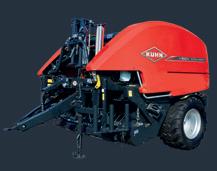

MAXIMISE FORAGE QUALITY

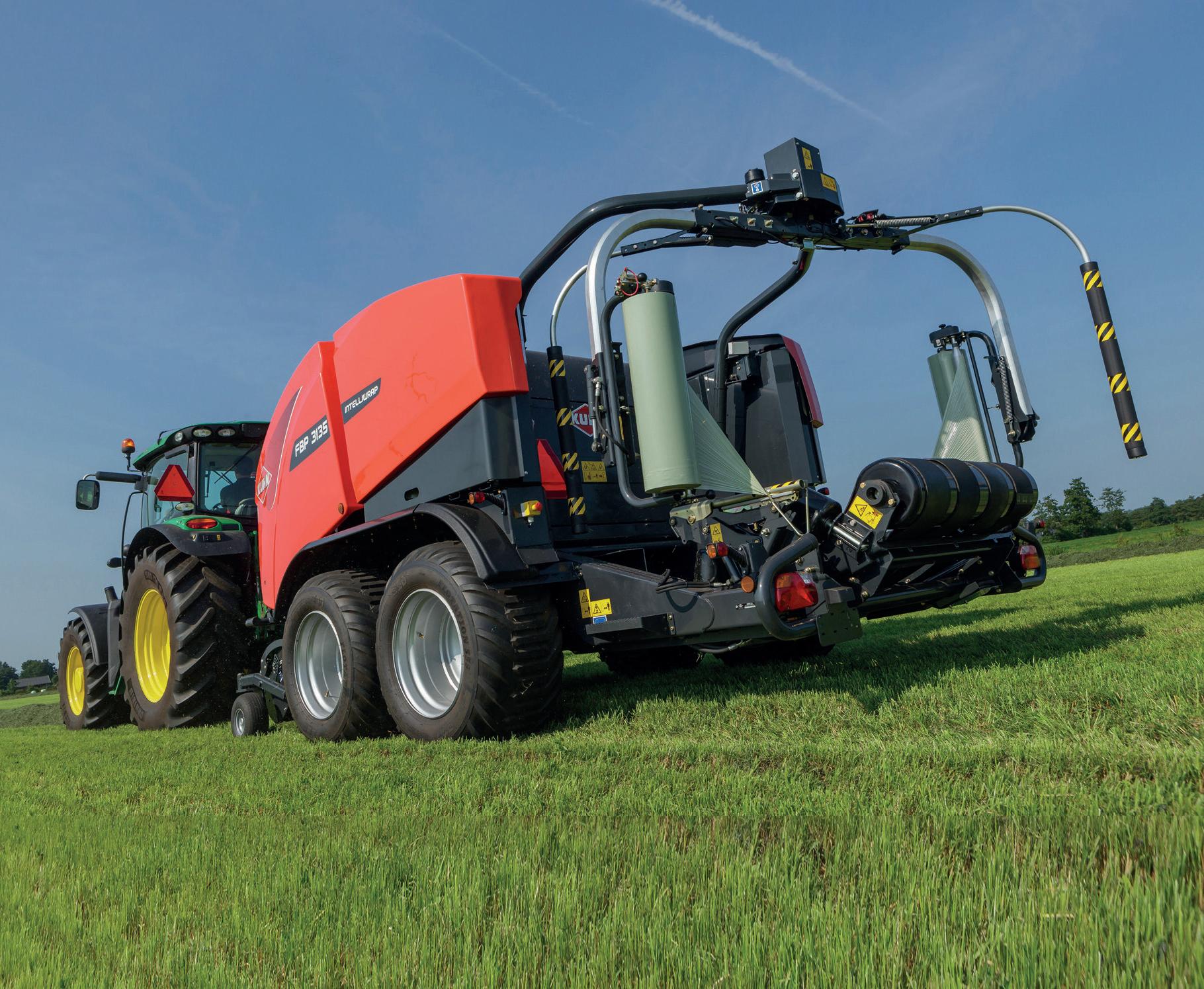
FILM BINDING
Patented award winning technology
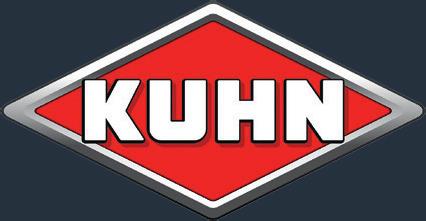
Reduces costs, enhances bale quality and simplifies wrap recycling.

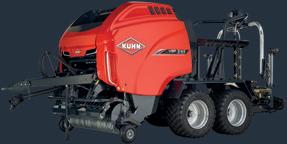 The KUHN baler-wrapper combination range
VBP FBP i-BIO+
The KUHN baler-wrapper combination range
VBP FBP i-BIO+

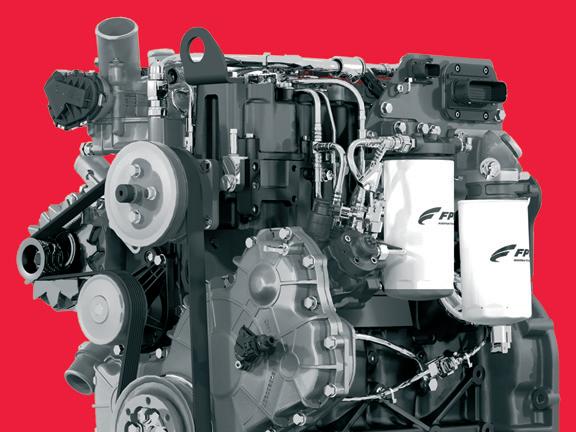
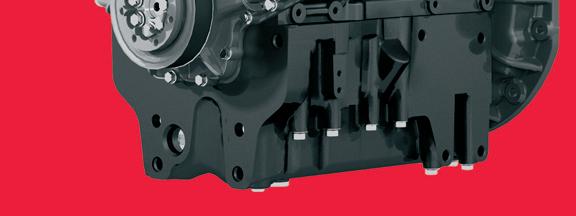
Load security
Stricter enforcement of rules governing load security on the road

Contractors and farmers need to pay special attention to ensuring loads hauled on roads are properly secured this season, following changes in the enforcement approach by the Driver and Vehicle Standards Agency (DVSA).
New DVSA guidance, recently seen by the NAAC, makes it clear that everyone involved in the transport operation have legal responsibilities to ensure road transport safety. The driver of the vehicle is not necessarily
the only responsible party and the vehicle operator and the person, or company, who puts the load on to the vehicle also have responsibilities in law.
All loads carried on vehicles must be secured, whatever the journey. This is to protect the people involved in loading, unloading and driving the vehicle, other road users and pedestrians.
Road regulations
It’s important to note the existing Road Vehicles (Construction & Use) Regulations 1986 have not
changed. They state: “The load carried by a motor vehicle or trailer shall at all times be so secured, if necessary by physical restraint other than its own weight, and be in such a position, that neither danger nor nuisance is likely to be caused to any person or property by reason of the load or any part thereof falling or being blown from the vehicle or by reason of any other movement of the load or any part thereof in relation to the vehicle.”
From 1 May 2022, however, this rule has been applied in
SUMMER 2022 FMJ CONTRACTOR HANDBOOK 17 Legal// Road safety
The security of loads hauled on the roads will now be subject to greater scrutiny. Pic: Tim Scrivener.
perhaps a more robust way by the enforcement agencies. Key to this is road safety and bulk loads will continue to be under the spotlight this summer.
Statistics show that in the ten years since the on-road enforcement approach was last updated, there have been several load shift incidents involving agricultural vehicles, resulting in higher scrutiny.
Examiners will now be making a simple assessment about the load security. This will involve checking can it move or has it moved? If they decide that it is insecure, they will select the reason (or defect) that best fits the insecure load, which will printed off on to the prohibition, so that the driver is in no doubt as to why they have a problem.
Secure the load
Essentially the load should not be considered dangerous or likely to be shed on to the road during transit. This means that loads transported on agricultural vehicles and trailers must be secured in the same way as any other load when being transported on the public roads.
In terms of loose loads in tippers or similar bulk loads, vehicle examiners have been instructed to act when a load is not properly sheeted and/or when the load is heaped up in the middle of the vehicle/ trailer above the sides.
It is important, when assessing loads, for the operator to consider load security in conjunction with work at height and manual handling when thinking through the risks in their business.
Safe and secure
Unsecured loads can affect the handling of the vehicle, increase the braking distance, or increase the risk of a rollover. Load items falling from the vehicle during the journey can strike other vehicles or pedestrians, or create an obstruction in the carriageway that causes other drivers to have to swerve or brake heavily to avoid. The weight of heavy items alone cannot be relied on to hold them in place and even small, light items can kill if they come off a vehicle travelling at speed.
Points of note
• A load on an open vehicle or trailer must be prevented from moving upwards, as well as from side to side, or front to back. For some loads, that can mean strapping the load to the load bed, but generally it will need to be sheeted with either a net or tarpaulin.
• Bales, bags and boxes must be secured using rated nets or tarpaulins, or by strapping over the top of an empty pallet placed on top of the bag to distribute the force of the strap(s).
• If transporting a crop in a bulk tipper and loading above the height of the sides, the trailer must have a rigid cover or a sheet that completely covers the load bed.
• When transporting bales or boxes over the height of the headboard of the trailer, additional securing must be used to prevent the load moving forward.
• The gap between the front of the load and the headboard on all trailers must be less than 30cm, unless additional securing has been used to prevent forward movement of the load.

18 FMJ CONTRACTOR HANDBOOK SUMMER 2022
Bales, bags and boxes must be secured using rated nets or tarpaulins, or by strapping














WEAVINGMACHINERY.NET 01386 49155 Ask about our pay as you farm plans. SEED DRILLS I CULTIVATORS I FLAILS I HEDGECUTTERS FOR GREATER YIELD AND LOW DISTURBANCE UP TO 300KG DOWNWARD UP TO 5000 LITRE INTER-ROW CLEARANCE OF 1 METRE ANGLED DOUBLE DISC COULTER FULL ISOCAN CONTROLS 166MM ROW SPACING TRAILED GD DRILL
Starting out
It takes time and effort to build a successful contracting business
During the past 12 years
Suffolk contractor Rob Cannell has worked hard, taken every opportunity and overcome many difficulties to establish his well-respected, successful specialist spraying business.

Growing up on a small family farm and gaining skills on other farms, Rob says he knew that he would go it alone. “I had nothing against my former employers — we all still get on.
“But, I don’t know, perhaps I have a problem with authority,” he laughs. “I was frustrated and just wanted to be my own boss.”
Together with his wife Sophie, he operates Rob Cannell Agri Contracts, from their base at Halesworth, near Ipswich in Suffolk.
“It’s very much a joint venture. As well as looking after the finances, invoicing and other business paperwork, Sophie will also run around collecting and delivering the chemicals as well as driving the bowser and, of course, tolerating me being on call all the time,” he says.
Today Rob is operating a one-year-old forward-control Mercedes Benz Unimog S-Trac, equipped with a 24m-wide
Landquip demount sprayer unit. Converted by South Cave Tractors in Lincolnshire, it’s just one of two operating in the UK and is, essentially, custommade to Rob’s specification and requirements.
Logistics key to success
For back-up he has another Unimog with demount tank, which also tows a bowser. Again it’s a purpose-built set-up, which he bought second-hand. Apart from relying on Sophie, Rob is also able to call on help from a couple of self-employed operators, who help out when he is busy.
20 FMJ CONTRACTOR HANDBOOK SUMMER 2022
Soon after starting his contracting business Rob Cannell decided to specialise in spraying
“Over the years I have learned the key to success in contracting is getting on top of the logistics — pre-planning, being organised and having everything in the right place at the right time,” says Rob.
He has even installed his own water storage tanks on customers’ farms. “It takes a while to get this all sorted, but it does get easier now we are working on larger areas. I have a clear understanding of our business’s strengths and weaknesses: sorting out the logistics is a big strength, which means I can get over the acres and move quickly and efficiently between jobs. The weaknesses come from breakdowns and, I admit, my lack of patience!
“I also have a back-up machine. It’s such a time critical job, I cannot afford any stoppages due to breakdowns. This helps keep me going, which ensures I don’t let down my customers,” he explains.
Rob now carries out about 90% of the work himself — putting about 2000hr/yr on the new S-Trac. “The sprayer is an enormous investment, but one I feel was definitely worth it and now, at today’s diesel prices, it’s providing huge fuel savings. It can legally travel at 40mph on the road, which saves time.


“Its mechanical transmission is also much more durable than a hydrostatic, which saves fuel and is able to cope with long road hauls with a much lower risk of breakdowns,” he adds.
Points of note
• Set a budget and stick to it
• Ensure you are not under-insured
• Make sure you have back-up work
• Pay close attention to logistics
• Be prepared to do anything to keep cash coming in
• Cash flow is king — invoice promptly and follow up late payments
• Buy the machine you ‘need’, not what you ‘want’
• Careful planning and preparation always pay
• Build relationships locally and nationally
• Be prepared to help out on other work – bale hauling, grain cart etc. Customers will appreciate it and often repay loyalty
• Communication is key. Don’t ignore calls and emails.
NAAC member
Rob is an enthusiastic member of the NAAC, which he says provides tremendous support. “The help they offer is brilliant, providing a wealth of advice and updates on all kinds of business matters such as legal advice — particularly road traffic laws.
“I attend regional and national meetings, where it’s really good to talk to and learn
from others — particularly because they know exactly what we are all going through. It’s also interesting to see how others approach what is essentially the same job and find out about regional differences in, for example, pricing and costings,” he adds.
From small acorns
This is all quite different from when, at the age of 30, he took
SUMMER 2022 FMJ CONTRACTOR HANDBOOK 21
start-up
Casestudy// Contracting business
Above: This latest Unimog-based S-Trac is essentially custom built to meet Rob’s requirements Right: “Know your business strengths and weaknesses,” advises Rob Cannell
Casestudy// Contracting business start-up
what he says is still a ‘big decision’ and with a £25,000 loan he bought a well-used Bateman RB15 sprayer. It was a machine he knew well, having been one of its previous operators.
While he says winning the Farm Sprayer Operator of the Year competition in 2010 was not the main instigator for the move, it certainly gave him more confidence. At the same time he was working towards gaining his BASIS qualification.
“I didn’t really have much work lined up. Even our own farm was rented out. But, by coincidence, at the same time a larger contractor in the area gave up spraying operations. It wasn’t a huge area, but it was a big help to me. There also wasn’t much other competition at the time.
“One big step forward came with gaining a large area of potato work – with weekly blight spraying providing regular work. Interestingly it was probably the crop, which at the time, I had the least
experience. It did, however, influence my decision to specialise in spraying,” he adds. Nevertheless, during the early years he wasn’t in a position to concentrate solely on spraying or be picky about what work he did. “You need to keep the cash coming in, so I would do any work I was offered – driving a lorry hauling sugar beet, carting bales. I needed this work to keep me going,” he stresses. “As things moved on I realised if I stuck to, and specialised in, spraying I could get more work.”
Over the years Rob has owned and run a succession
of sprayers, mostly Bateman self-propelleds – some more successful and reliable than others. His current line-up still includes a rare RB Trac 190 he bought specifically for applying suspension fertiliser. “I’ve decided to take a break from that work at the moment, because it can involve huge distances and, because I can’t influence the logistics, I feel I’m not in control of my own work,” he explains.
He has also picked up more spraying, particularly in the summer with late sugar beet fungicides and the end of blight programmes. This is because at the time these applications are required, the farm’s skilled sprayer operators are often needed elsewhere.

However, he notes, this skills shortage is a double-edged sword for contractors: “On one hand I pick up spraying the farm doesn’t have the operators to do, but the drawback is it makes it very difficult for me to find any skilled staff to help me out. It does make it very difficult to expand,” he comments.

22 FMJ CONTRACTOR
2022
HANDBOOK SUMMER
This unusual Bateman RB Trac 190, used to earn its keep applying suspension fertiliser
Planning, preparation and investment in logistics are key to successful contract operations
XERION TECHNIQUE
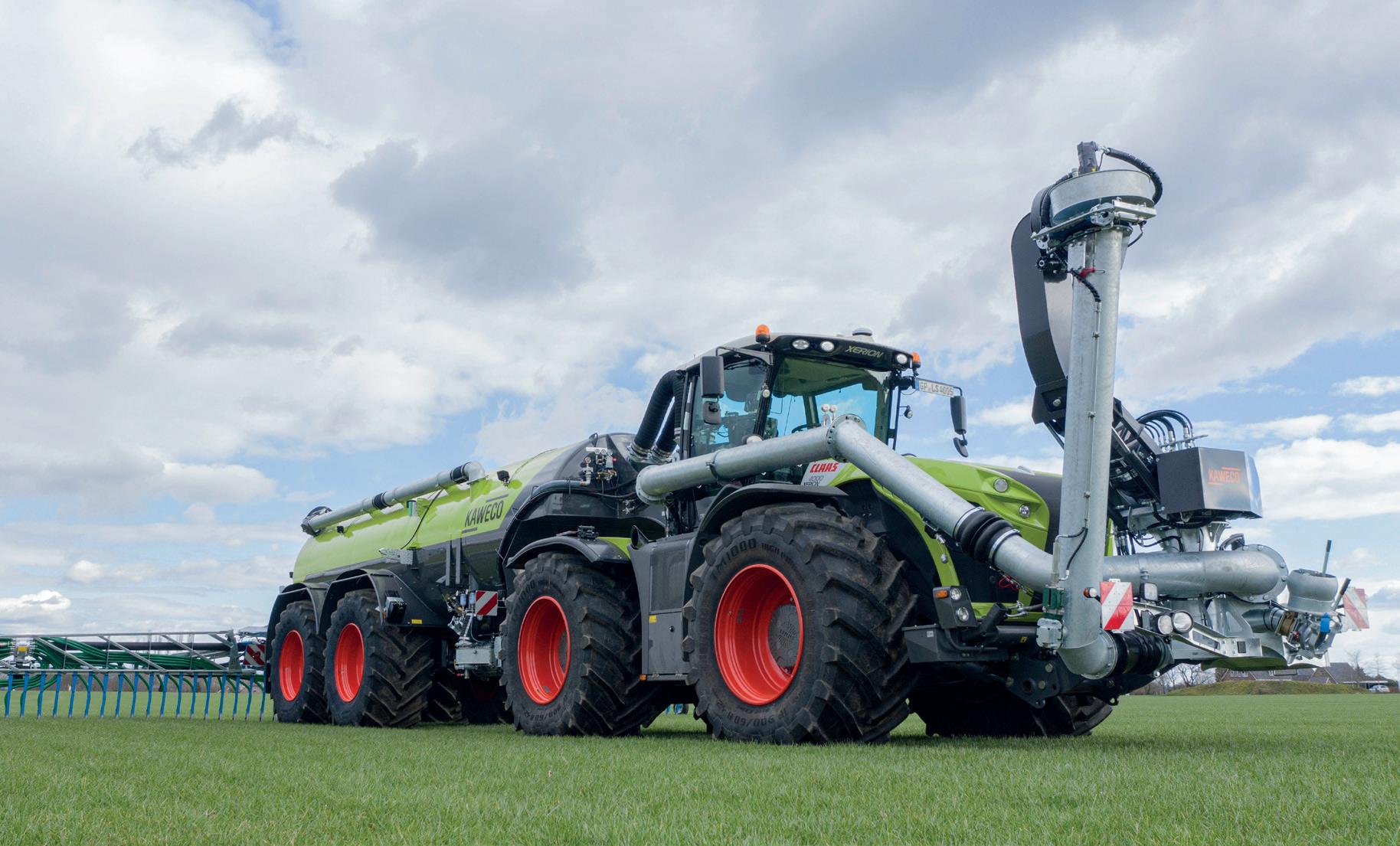
Perfect interaction between tank and tractor!
MORE VALUE IN THE FIELD

WWW.KAWECO.COM WILFRIED BUIËL +31(0)544 461949
A NEW GENERATION OF HIGH PERFORMANCE BALERS.
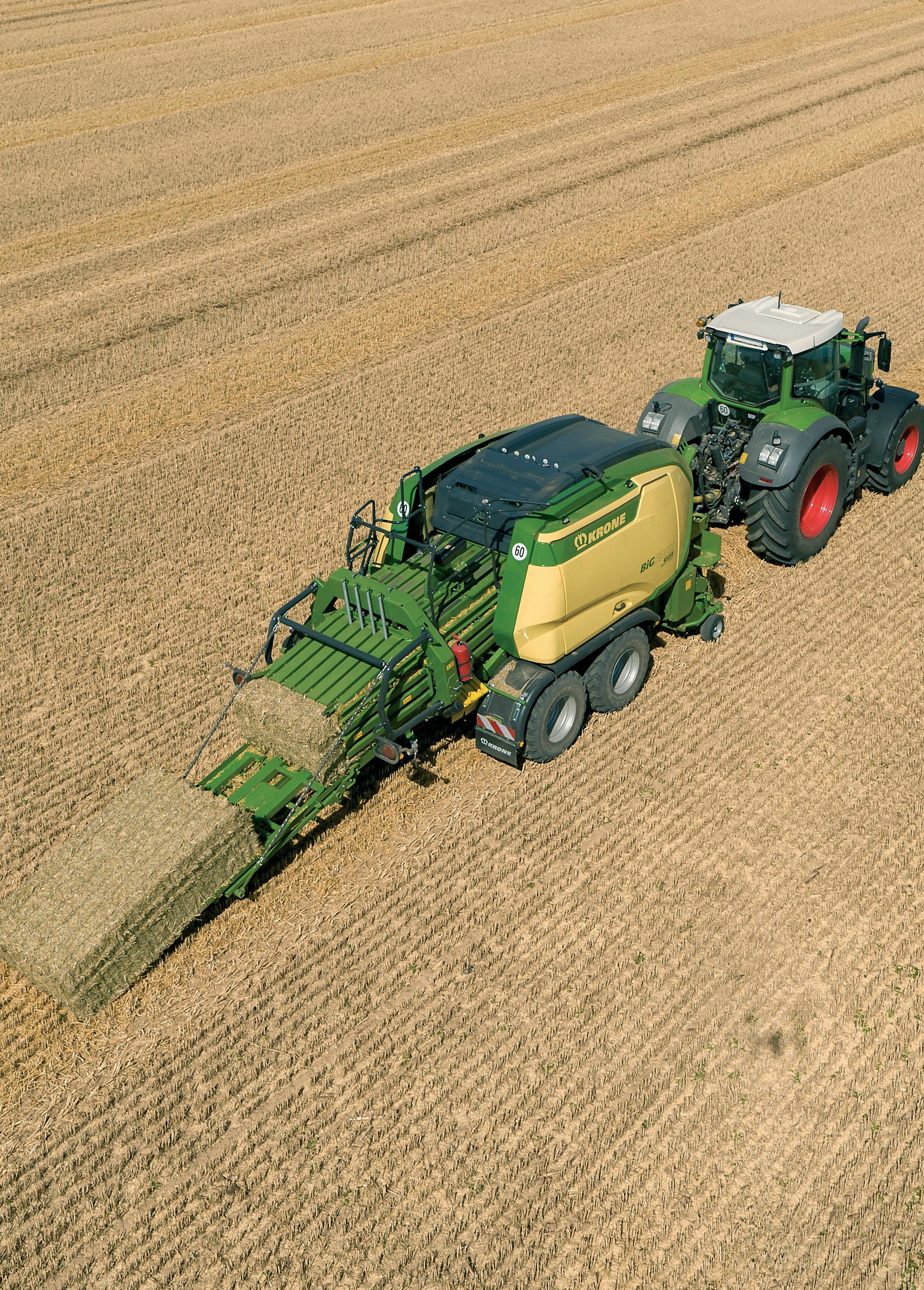
MAXIMISING OUTPUT
Performance boosted VFS system guaranteeing the densest of bales.


BUILT FOR PERFORMANCE
High throughputs with a 20% longer baler chamber of 3.6m.
INTUITIVE DESIGN
Shear pin free driveline for minimal downtime.


WWW.KRONE-UK.COM
CONTACT YOUR LOCAL KRONE DEALERSHIP TO ARRANGE A DEMONSTRATION.
Work safely together
Contractors and farmers must make safe working the top priority
The NAAC and NFU have worked together to produce a checklist to help farmers, who decide to work with a professional contractor, put in place the actions and communicate the responsibilities required for jobs to be carried out safely and efficiently.
It is vital that contractors and farmers have a close working relationship. This new checklist is a useful tool that not only makes the partnership a financial and productive success, but also keeps everyone safe.
“Many farms now rely on contractors to provide a skilled
labour force and high-tech machinery. It is essential that everyone works together to exchange local information to make the job run smoothly, avoid public nuisance and keep staff, families and the public safe,” says Jill Hewitt, NAAC chief executive.
As part of the Farm Safety Partnership, the NAAC and NFU are working with other industry organisations to improve the safety record in farming.

It is difficult to separate business requirements, environmental concerns and safety, because all tend to be interlinked. This new checklist aims to draw together these
various elements to ensure a successful and safe contractor-farmer relationship.
“Farmers and agricultural contractors work closely together on a day-to-day basis, and this new checklist is a great tool to ensure that the whole industry is working together to help everyone remain safe,” explains NFU vice president David Exwood.
“This checklist is about improving the working relationship between farmers and contractors by making small changes to reduce the risk of accidents, while also improving efficiency and productivity.”
SUMMER 2022 FMJ CONTRACTOR HANDBOOK 25
Business// Strategic planning
Farmers and contractors are encouraged to work together to establish safe working practices
Business// Strategic planning
Before a job starts both parties must agree on:
• Designated responsibility for waste produced from the operations carried out by the contractor (e.g. plastics, PPP containers, spent sheep dip etc).
• Work plan – ideally in writing.
• Responsibility for notifying residents/public prior to work taking place if necessary (e.g. local residents, beekeepers).
• Whether any specific local routes are required to avoid public nuisance.
• Risks of the job and how they will be managed/controlled and by whom.
• Terms and conditions.
• Payment rate and terms.
Clear instructions
The farmer must provide the contractor with clear and detailed instruction on the operation(s) to be carried out by the contractor (ideally using maps and in writing).
Safety partnership
Farmers and contractors must work together to ensure safety management is a priority while contractors are on farm. Both parties will have duties under health and safety law and open communication is essential to ensure that everyone is fully aware of their individual responsibilities to protect staff and the public.
The farmer and contractor will both need to have their own safety management policies and procedures in place and make sure everyone is aware of any risks from each other’s work.

The contractor will carry out a visual risk assessment on site. If there are significant risks, the customer should expect that work will be stopped until satisfactory controls are put in place. Farmers do not shift all responsibility for safety to a third party when
a contractor is used, and it is vital to work together on this and always keep lines of communication open. The following checklist provides a guide for what both parties should expect from each other.
Selecting a contractor:
• Choose a properly insured professional.
• Check that they have sufficient skills, training and the correct qualifications to carry out the operation safely and to the necessary standard.
• Check they can meet your Assurance Scheme requirements (e.g. proof of professionalism such as NAACs ALBC).
• Check if sub-contractors will be used and who/how they will be managed to maintain safety standards.
• Check they have a written health and safety policy.

26 FMJ CONTRACTOR HANDBOOK SUMMER 2022
Farmers do not shift all responsibility for safety to a third party when a contractor is used
Think different, think ahead
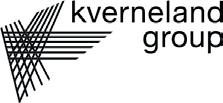
The Vicon ProfiLine is just that little bit different to what you would expect. By thinking differently, Vicon offers solutions on spreaders, triple disc mowers, four-rotor rakes and FastBale non-stop balerwrappers that make grass harvesting efficient, fun and successful.
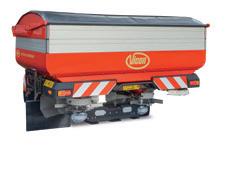
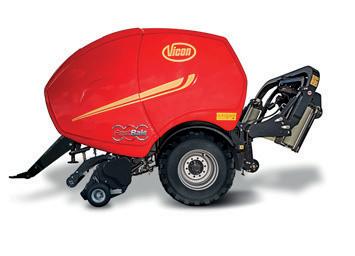
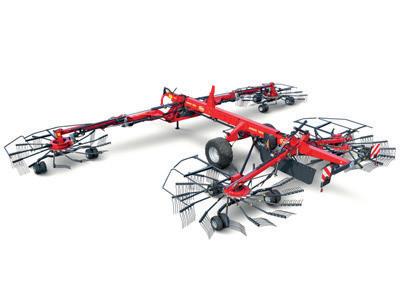
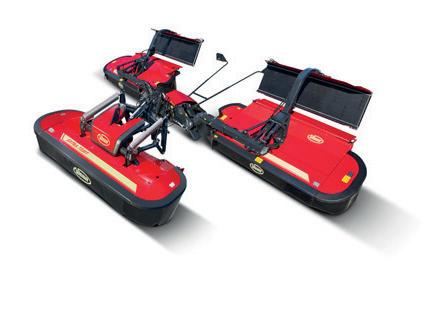
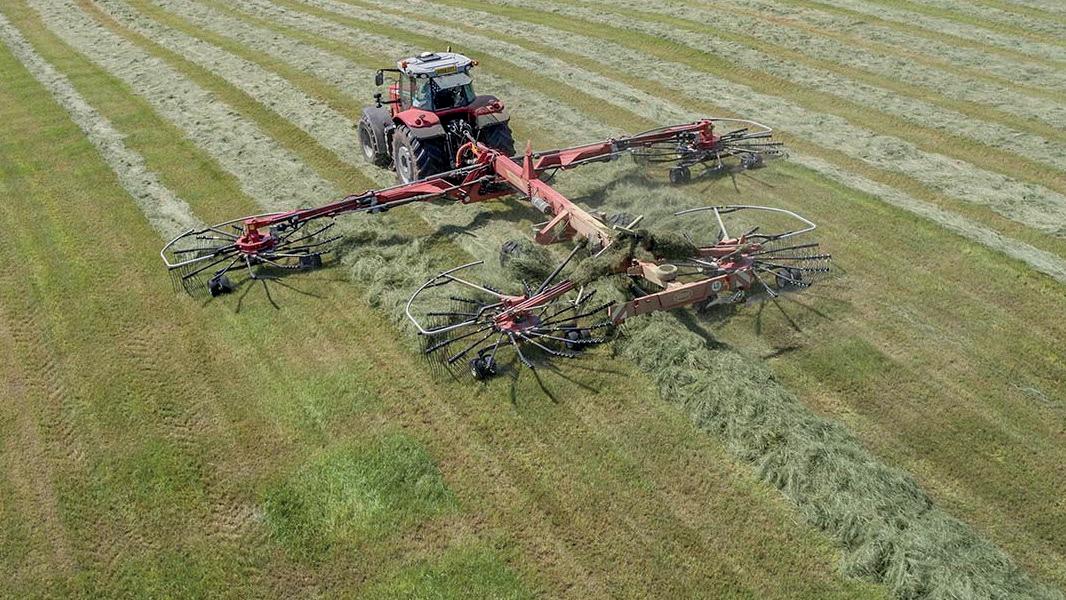
Call your local Vicon dealer for more information @UKvicon

uk.vicon.eu
Andex 1505 Rake
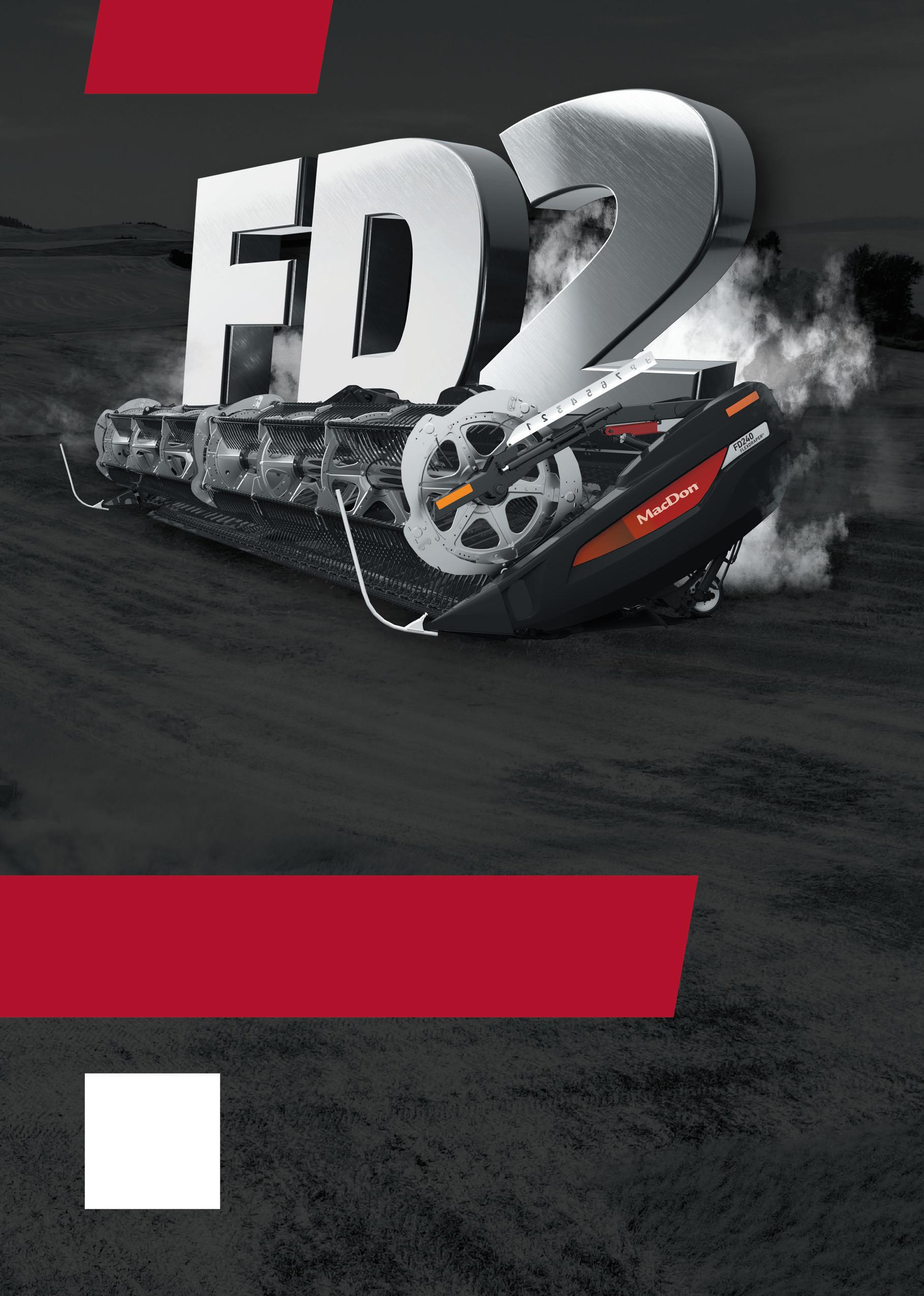








































































































 The KUHN baler-wrapper combination range
VBP FBP i-BIO+
The KUHN baler-wrapper combination range
VBP FBP i-BIO+










































